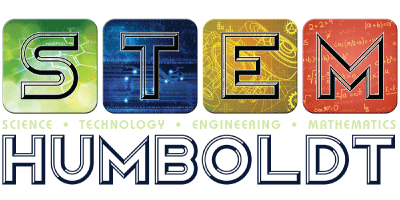Spiraling the Engineering Design Process in Middle School
by Kimberly Dedini, Anna Som, Mary Ann Sheridan, and Lisa Klar
This module works on teaching engineering design by spiraling the math, science, and engineering standards for 6th through 8th grade students.
Students will work in collaborative teams to experience and become adept with utilizing the Engineering Design Process at each grade level. 6th grade will explore the process, 7th grade will use data to drive decision making, and 8th grade will go through the entire process with an emphasis on iterations.
How are STEM integrated?
6th Grade – Students will use their knowledge of ratio and proportions to scale down a solar cooker that 8th grade is making. As part of the process, they will make a conjecture as to whether their solar cooker will produce the same, less, or more heat than their 8th grade counterparts’ solar cookers. Students will collect data as to how quickly their solar cooker heats up, graph it (online graph tool), and finally compare their data to the 8th grade’s data. In addition, students will learn about solar heat and the benefits of this form of energy as it relates to their energy footprint left on their ecosystem.
7th Grade – Students will analyze electrical bills; use a watt reader to gather data between 2-3 bulb types from RCEA “Bust a Watt Activity”; create graphs via Google Sheets to organize and analyze data from their “watts” reading; research the financial and environmental impacts of each bulb type; and create and present to MUSD School Board their recommendations of the best bulb to use in our district.
8th Grade -The MMS team created a unit on energy consumption issues through an investigation of school buildings and grounds. Students will use mathematical concepts to quantify the scientific data. Students will utilize the Engineering Design Process to be able to organize information and have a common strategy/language. Students will watch a video, use online resources, and iPads to integrate technology.
LESSON
- Engineering Design Module Overview
- Engineering Design Process PreAssessment
- Download all MODULE RESOURCES (zip file)
RESOURCES
Talks about energy consumption- http://www.westga.edu/energy/index_2262.php
Ted Talk – “A Guide to the Energy of the Earth”
Building Swamp Cooler/ Evaporative Cooling
Energy Game Board – 8th Grade
http://www.clarkson.edu/highschool/k12/project/energychoicesgame.html
Alternative Ways to Power Things
7th grade
Light bulb experiment
http://www.appropedia.org/RCEA_Bust-A-Watt
Meter Reading
http://learningtogive.org/lessons/unit527/lesson1.html
Three lessons for energy efficiency:
http://www.pge.com/includes/docs/pdfs/myhome/edusafety/teach/energenius/HEES.pdf
6th/7th grade
PGE
http://www.peakstudents.org/teachers/interested/default.asp
Trees and Energy
http://www.pge.com/includes/docs/pdfs/myhome/edusafety/teach/energenius/Tree.pdf
Water and Energy
What Is Energy?
http://www.eia.gov/kids/energy.cfm?page=1
http://www.eschooltoday.com/energy/kinds-of-energy/what-is-thermal-energy.html
A Day without Power
http://www.scholastic.com/lifeempowered/
~Has lessons and resources already done
The Engineer Design Process (elementary brake down)
http://www.eie.org/overview/engineering-design-process
YouTube Videos – you an also search on YouTube, “Design Squad Global” to see all videos.
3-D Printed Hand: https://www.youtube.com/watch?v=HY30wUZUfFA
Kid Engineer: Bike Trailer: https://www.youtube.com/watch?v=Vcma79mVAYw&t=20s
Glow Sticks: Design Squad: https://www.youtube.com/watch?v=NHDTFHRQDqM
